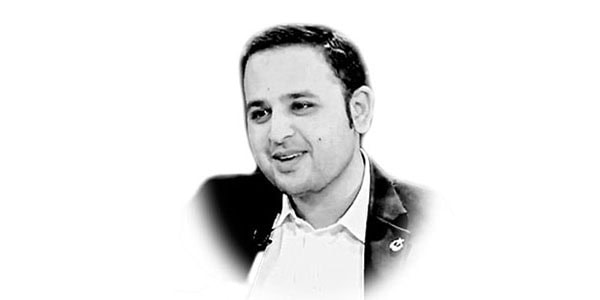Is Pakistan next Sri Lanka?
WE all know what happened in Sri Lanka, there was a sovereign-debt crisis which annihilated the country’s economy and lead to an Arab Spring like political uprising by the masses at large.
Since then, a number of politicians and political analysts have hinted at such a situation developing in Pakistan, including Ex-Prime Minster Imran Khan in his latest jalsas.
One can understand the apprehension that may arise due to the similarities between Pakistan and Sri Lanka, essentially it was Sri Lanka’s foreign reserves which drained to zero and the import of essential items including energy and medicines became an impossibility, Pakistan too has had a foreign reserve problem since at least the 1950s, and Pakistan had to rush to the IMF only eleven years after its inception, a cycle that Pakistan has repeated 22 times in 61 years.
Sri Lanka shares ourneighborhoodand the proximity has led to an aura of fear. However, in the opinion of this author there are two main reasons behind the chaos and anarchy in Sri Lanka, both reasons effectively countered in Pakistan.
Let’s come to the obvious first, the Russian invasion of Ukraine had sent inflation into full swing specially prices of fuel.
Countries like Pakistan or Sri Lanka had to make tough economic choices, but in the case of Sri Lanka the country was not only accumulating debt but spending high amounts of finance on infrastructure and handing out massive tax cuts and subsidies.
The tourism sector was already battered by the corona virus and while there was still time to make tough economic choices the government acted in populistfashion which led to insufficiency of foreign currency.
The economy exploded and food inflation sored to over 80%. This is not the case with Pakistan which is inching closer to a deal with the IMF, which of course depends on a hike in energy prices.
This is a tough decision for any government to make and the leaders of Sri Lanka failed to take such unpopular decisions, on the contrary not only has Pakistan removed billions of rupees on subsidies of fuel but also raised the prices of fuel and electricity as well as place a ban on luxurious imports.
As a result of this the government has faced an onslaught by the media as well as by the political opposition, but the necessary steps have been taken in Pakistan and the country is nowhere near a default.
The position is precarious but we have faced such situations a number of times in the past. For Pakistan to run out of reserves to an extent where it can not import energy is not on the horizon at least in the near future.
But there is also another angle to the crisis, Pakistan’s 18thamendment to its Constitution in 2010 was replicated by Sri Lanka’s 19th amendment to its 1978 Constitution.
Both of these amendments were aimed at turning the respective states into a full-fledged parliamentary democracy and restrained the role of the President in executive matters, specifically the power of the President to sack the Prime Minster at his pleasure.
In the past few years repeated debates haven ensued in repealing the 18th amendment in Pakistan, but such a initiative was never taken in view of the opposition not only by political parties but specially the legal community, including Pakistan’s independent judiciary as well as the Bar Councils and Associations.
In Sri Lanka however the 20th amendment to the Constitution repealed the 19th amendment which gave unprecedented powers to the president of Sri Lanka.
Despite opposition includingprotests, the Supreme Court of Sri Lanka not being completely independent or able to enforce its directives against the executive failed to set aside the amendment, even though its neighborIndia struck out an unconstitutional amendment in the Kesavananda Bharati case in 1973 when the basic structure of the Constitution of India was destroyed by the dictatorial Indra Gandhi.
Compare this with Pakistan where a popular Prime Minster dissolved the assemblies in connivance with a passive President, the Supreme Court of Pakistan restored the National Assembly.
The Prime Minster was then thrown out through a vote of no confidence which he had intended to avoid.
The jurisprudential point to make here is that when strong institutions exist in a politically independent society the threat of anarchy and chaos is significantly subsided.
One can take the example of 2021 United States Capitol attack when the supporters of President Trump had nearly restrained the United States Congress from announcing the victory of President Joe Biden, however the institutions reacted strongly to such an attempt and democracy continued and flourished.
No one could argue that constitutional stability and rule of law are imperative to a strong economy, this is the second difference between the situation of Pakistan and Sri Lanka. Rest assured, Pakistan is not the next Sri Lanka.
—The writer, a barrister, is based in Karachi.










